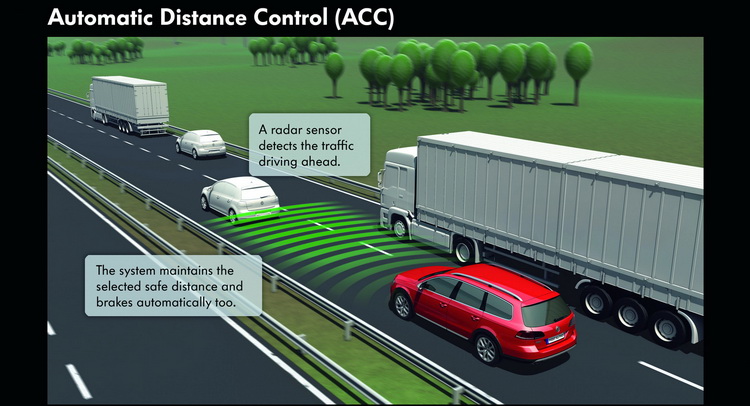Owners of the latest Golf model have been found 45 per cent less likely to make a third party insurance claim in the UK, thanks to VW’s auto-emergency braking systems.
The UK study was conducted by the Thatcham Research Centre and was based on the findings from more than 7000 Mk VII Golfs insured for a full year on the road and their claims data from the insurance members of the Research Centre.
Matthew Avery, Director of Safety at Thatcham Research, said: “When we saw figures based on an initial small sample, we were surprised, as they exceeded our own performance testing. However the figures held up, even after almost doubling the sample group, and have therefore given us a glimpse of what safety on UK roads could look like in the future.”
The VW Golf is offered with the Adaptive Cruise Control (ACC) as standard, except for the entry-level S model. ACC is using the Front Assist radar sensor which controls the distance from the vehicle ahead, which is also used for emergency city braking. The system operates over a speed range from 18 to 99mph (30 to 160km/h) and it’s offered with both manual and DSG gearbox. In DSG-equipped models, the system can slow the car to a full-stop if necessary.
The new Passat also has ACC as standard on all but the entry-level S model. In this case, the system is also able to detect pedestrians and Thatcham says that the reductions in accidents could be more significant, once their study is completed.
VW fits the ACC system on the Touareg, the Polo and the Up city car too with similar benefits.
The fitment of the ACC on the Golf and Passat means not only better overall safety but also reduced insurance group ratings, which in turn translates into cheaper insurance fees.








